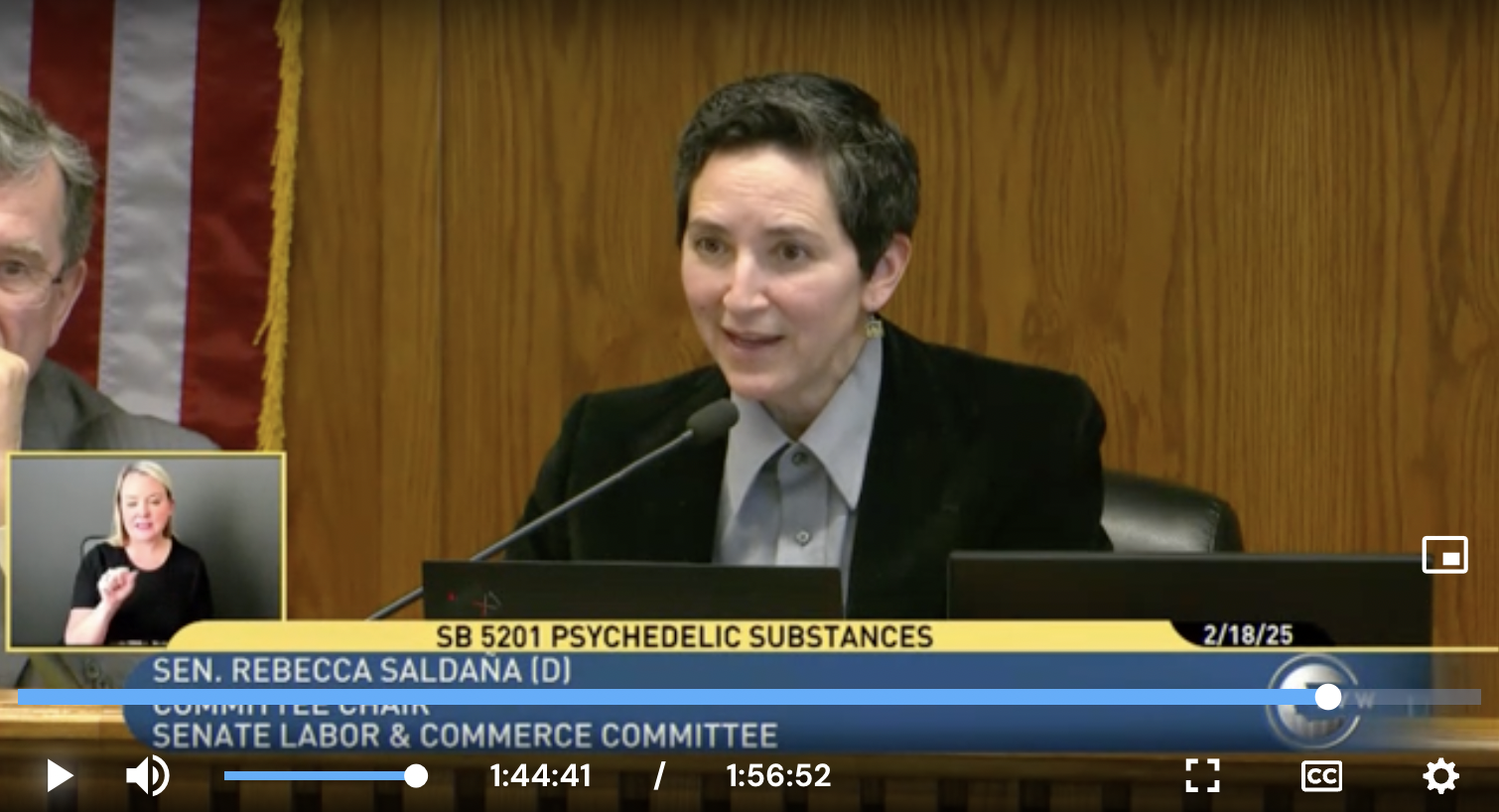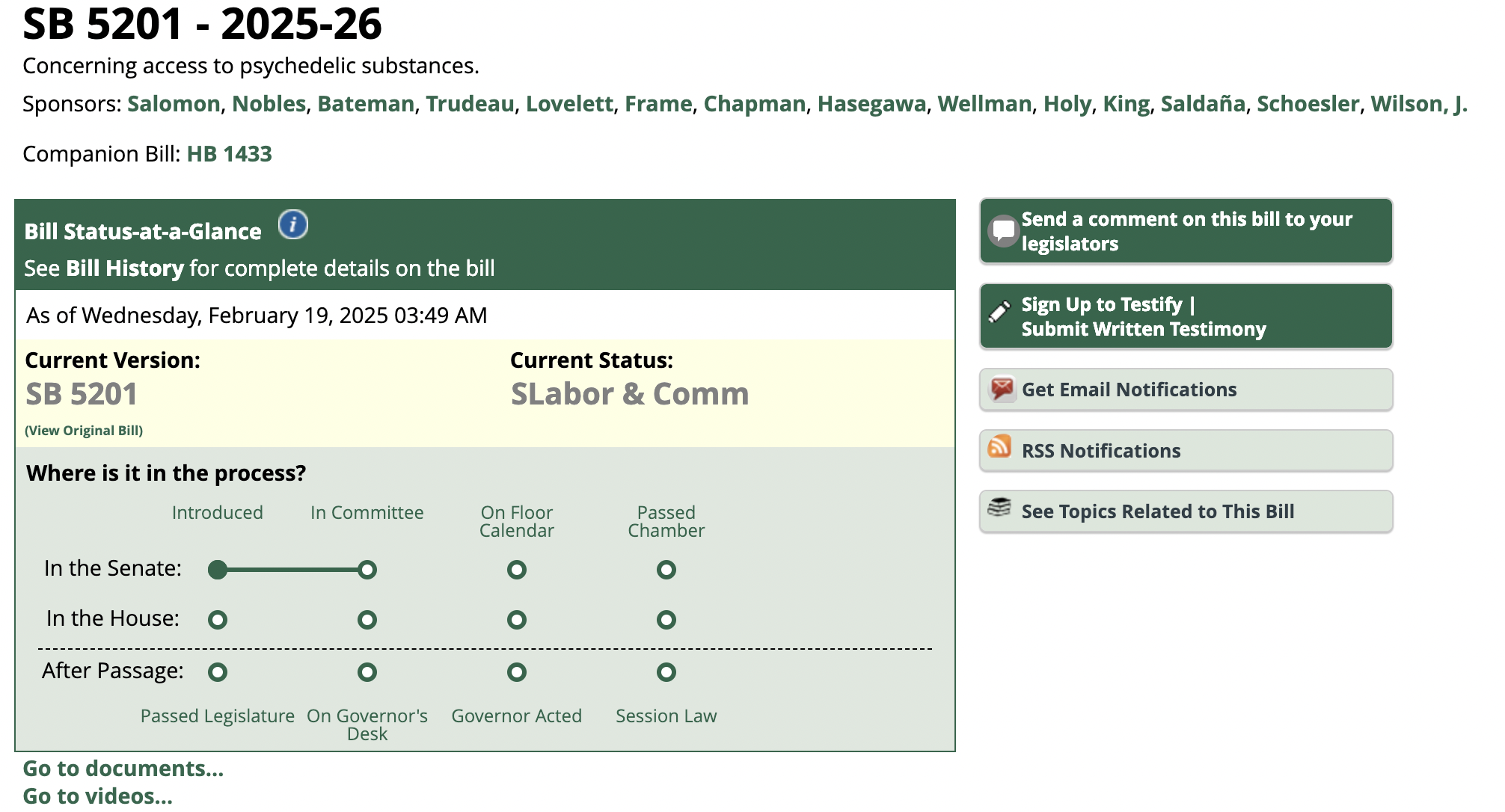Last week, the Oregon Health Authority (OHA) awarded a pair of psilocybin manufacturer licenses. First two!
Congrats to Tori Arbrust of Satori Farms PDX, and Andres Met of Satya Therapeutics, known to many of us from the Oregon cannabis program. We should also congratulate OHA, which had aimed to issue manufacturing licenses by the end of Q1. The Authority continues to meet externally and internally generated program deadlines.
Following issuance of these licenses, OHA also mentioned that “we expect to be licensing a laboratory, service center, and facilitators in the coming weeks.” Getting a lab online (at least one!) and a couple of service centers would be good: psilocybin mushrooms grow quickly, and these new licensees will be turning out batches in six weeks or so. All of that said, I continue to expect the program to be constrained for a while, and choppy.
Sometime after my write-up back on January 26 analyzing the slow start of Oregon’s psilocybin program, OHA began to publish weekly statistics on the amount of applications received and processed. Various people have complained that the data is awkwardly presented; I agree with them. Nevertheless, here’s what the report showed on March 22.
| Application Type |
Submitted Apps |
Incomplete Apps |
Approved Apps |
| Manufacturer |
15 |
11 |
2 |
| Service Center |
9 |
5 |
0 |
| Laboratory |
2 |
1 |
0 |
| Facilitator |
21 |
0 |
0 |
| Worker Permit |
177 |
94 |
48 |
Too many psilocybin facilitators
Yes, OHA data shows only 21 submitted applications. However, the data doesn’t include a large number of training program students and graduates, many of whom will pile into the licensing portal shortly. To wit, over 100 would-be facilitators graduated from the InnerTrek program a few weeks ago. And InnerTrek is just one of 22 certified training programs (Synthesis is still on that list somehow).
How will these hundreds of facilitators find placements at licensed service centers? Friends, they won’t; the ratio is out of whack. Of those who make it through, what sort of pay can they expect? I’m guessing it won’t be much, and that they’ll have insufficient leverage to dodge the outsized tax bite that could be taken by IRC 280E.
I expect the number of facilitators to outpace service centers at least through the end of 2023. Hopefully, many of these people have other employment to see them through, especially after shelling out $8,000 for training fees and another $2,000 for licensing. This will be a pain point.
Not enough testing labs
Opposite problem with labs. Only two laboratories have bothered to apply, and one of them hasn’t completed its application. Anyone who was around for the cannabis labs bottleneck, back in the day, will tell you that these bottlenecks are a bear. Here’s what I wrote about psilocybin testing labs in February of 2022:
It is an open question whether OHA licensed, ORELAP certified cannabis labs will bulk up and “pivot” to the psilocybin space. It would be challenging to make cannabis testing equipment work for psilocybin in most cases. Psilocybin is water soluble (see, “mushroom tea”) whereas cannabis is fat soluble (see, “CBD gummy”). The labs that currently test cannabis in Oregon typically extract through CO2, hydrocarbon, butane or ethanol.
Because of this fundamental incompatibility, we may instead see new labs come online. Or, we may see legacy labs move over from traditional fields like water testing. An issue for many there would be fear of expansion into a controlled substances space, due to federal funding and liability issues.
It doesn’t appear that new labs are coming online, and it doesn’t appear that legacy labs are “moving over from traditional fields like water testing.” Often, legacy labs have no desire or ability to move into a controlled substances space due to government grants and contract status alluded to above.
Problems may surface for Oregon psilocybin due to lab scarcity. These include testing delays; geographic access hardship; price inflation; and testing integrity issues. Watch this space.
Big picture
I’m not here to bury the psilocybin program. I’m impressed by several of our clients moving into the space, including the handful of potential manufacturer and service center licensees we’ve been lucky to represent. Many of these people aren’t even in it to make money, necessarily; they are mission driven.
As we’ve been saying from the outset, though, we want people moving into the space with eyes wide open. The OHA program will be slow and clunky for a while– an airplane being built after launch. There will also be access issues on the user side (socioeconomic primarily, and geographic), which are outside the purview of this particular post.
In all, I expect the distribution, sale and consumption of psilocybin to occur mostly outside of the regulated space in Oregon– not just while the airplane is built, but at least for a couple of years. It will be nothing if not interesting. Stay tuned.
Source: https://harrisbricken.com/psychlawblog/oregon-issues-first-psilocybin-licenses-now-what/


 Cannabis News2 years ago
Cannabis News2 years ago
 One-Hit Wonders2 years ago
One-Hit Wonders2 years ago
 Cannabis 1012 years ago
Cannabis 1012 years ago
 drug testing1 year ago
drug testing1 year ago
 Education2 years ago
Education2 years ago
 Cannabis2 years ago
Cannabis2 years ago
 Marijuana Business Daily2 years ago
Marijuana Business Daily2 years ago
 California2 years ago
California2 years ago




















